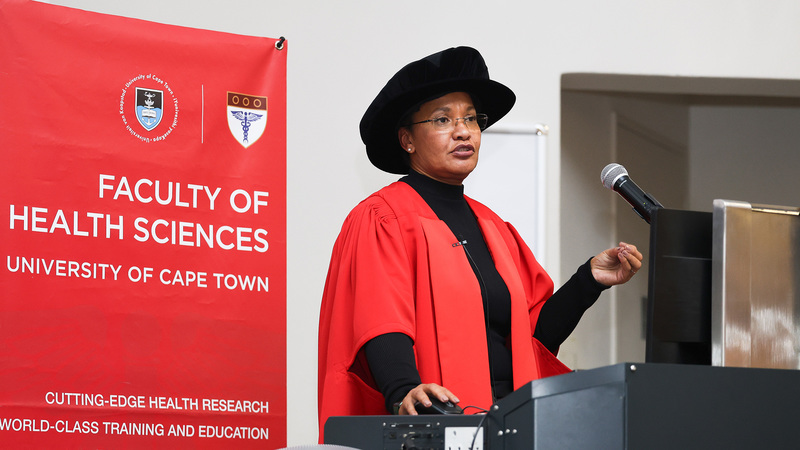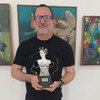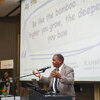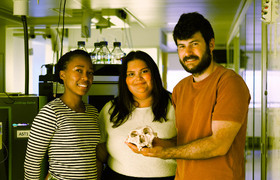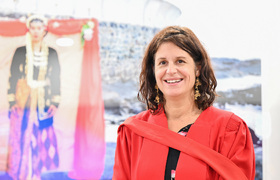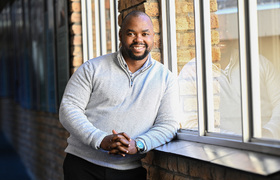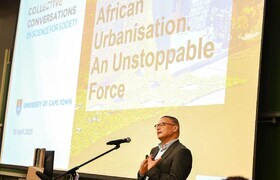Advancing African scholarship in health professions education
03 June 2025 | Story Kamva Somdyala. Photo Je’nine May. Read time 10 min.Advancing African scholarship in health professions education will require deliberate and focused collaboration across the health sector, according to Professor Jacqueline van Wyk, the University of Cape Town’s (UCT) head of the Department of Health Sciences Education.
Professor Van Wyk delivered her inaugural lecture on 29 May, titled: “Grounded in Context, Growing for Impact: Advancing African Scholarship in Health Professions Education”. To reach the point Van Wyk proposes, there needs to be careful consideration of factors at play in the journey to being a health practitioner.
Van Wyk has had an influential career in health professions education. She has worked on developing educational models that are socially accountable, locally relevant and rooted in inclusive pedagogy. She believes community engagement, mentorship and collaboration are vital to strengthening health systems and transforming health education across South Africa and Africa.
“Professional identity formation in health professions education is a complex and lifelong process and integrates personal values and professional roles into a coherent sense of self. This is shaped by social cognitive and effective factors. Often in school or community contexts, we bring a bit of ourselves into that setting and, in turn, the setting allows us to grow in some ways,” Van Wyk told the audience.
“There are several steps one goes through, namely: the anticipatory phase where clinicians and teachers often begin teaching but they do not yet see themselves as educators. They may have limited confidence and observations of teaching practices. Gradually, people may move to the adaptation and experimentation phase, where through active engagement with faculty development roles and experimenting with teaching strategies, you slowly increase your self-efficacy.”
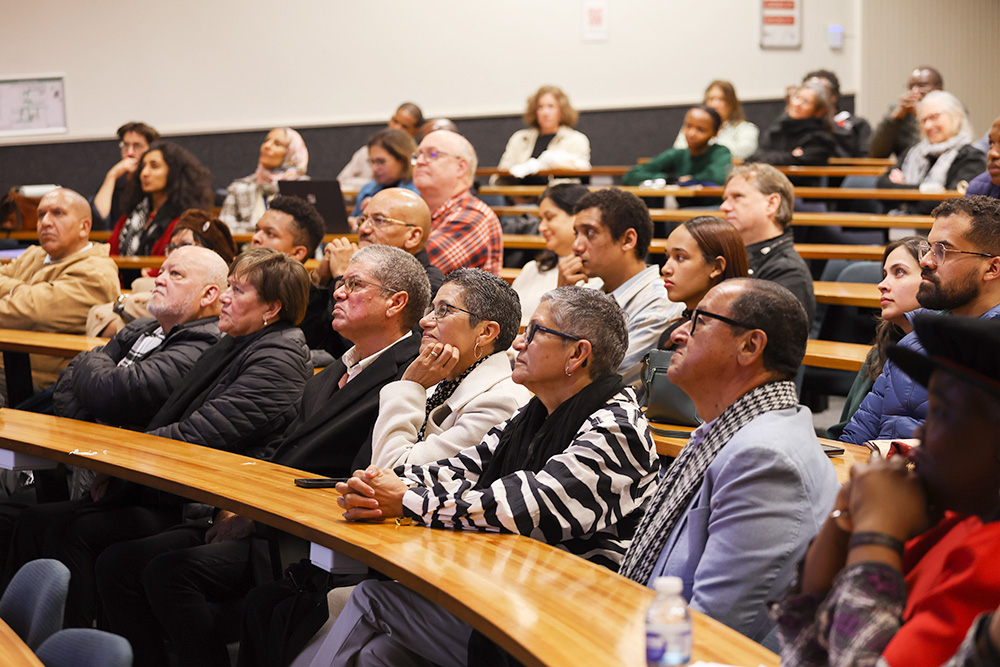
“In the third phase of internalisation and commitment, educators become fully integrated into their role and start developing a teaching philosophy. The fourth stage is the development of a scholarly identity and leadership where there is engagement in educational research and mentorship.”
With this background, Van Wyk also explored the idea of health professions educators as generalists. Whereas in the past the dominant focus was on just the teaching and learning aspect, educators now take on several other roles.
“There’s a student-focused approach which considers serving on committees where you deal with issues of student access into institutions and the selection of students. The second is student support, looking at not only providing academic support, but financial as well as health and well-being [of students]. It’s only recently that institutions have become more organised around these issues.
“Third, is where we send students for learning exposure – and that specifically is a thoughtful process, because in the past, most teaching happened at university institutions or hospitals nearby. It became clear students were not learning much in those settings; for authentic learning, students needed to see patients in communities.”
“Although there has been an increase in the number of graduates, this has not translated into better quality of care for patients.”
Therefore, what is advancing African scholarship? Van Wyk said: “It is to root research in real-world and African priorities that focus on relevant, transformative and socially responsive research that addresses issues like gender-based violence, elder care and practitioner well-being. It also offers us the opportunity to decolonise and reimagine the curriculum and to replace colonial academic models with more inclusive, context-driven and socially accountable approaches that reflect our African realities and gives a voice to marginalised communities.
“It leads to mentorship and mobilisation for impact and you use the opportunity to advance African scholarship by mentoring researchers and translating research into practice by fostering inter-disciplinary collaboration for African solutions and build equal systems of scholarship that will cultivate new generations of scholarship and educators, equipped and inspired to lead transformative change in this context and space.”
Primary healthcare prioritisation
There is a systemic mismatch between the people training and workforce planning and where resources have been allocated, Van Wyk said. “Although there has been an increase in the number of graduates, this has not translated into better quality of care for patients and many graduates are not equipped to meet the complex, evolving healthcare needs of communities.
“Health professions education departments such as ours have been identified as possible places where changes can be made by either focusing our research or capacity development or work in service towards addressing these issues. Some of the service work we do is, for instance, adapting curriculum to context; to promote social accountability and community orientation; to make sure there’s a prioritisation towards primary healthcare; the need to train the right workforce and to leverage digital education for training professionals and their teachers in the area of capacity development.”
 This work is licensed under a Creative Commons Attribution-NoDerivatives 4.0 International License.
This work is licensed under a Creative Commons Attribution-NoDerivatives 4.0 International License.
Please view the republishing articles page for more information.


